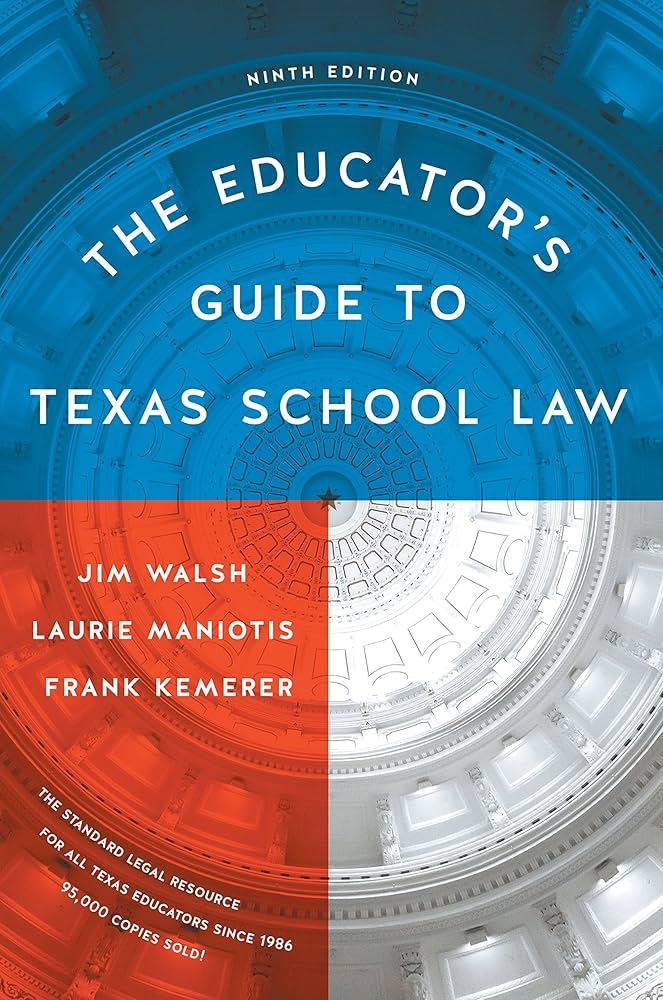Transforming Texas Education: New Legislation Reshaping Classrooms in 2024
As the 2024–2025 school year kicks off across Texas, educators, students, and families are adjusting to a series of newly enacted state laws that promise to redefine the educational experience statewide. According to recent reports from the Houston Chronicle, these legislative reforms span a broad spectrum—from curriculum content and instructional methods to student protections and safety measures. Lawmakers have introduced these changes to address ongoing debates and emerging educational challenges, compelling schools to modify teaching approaches, administrative protocols, and the overall learning atmosphere in the months ahead.
Highlights of the legislative updates impacting Texas classrooms include:
- Stricter requirements for documenting and responding to bullying and harassment incidents.
- Updated curriculum standards with a stronger focus on Texas history and civic education.
- New limitations on instructional materials covering sensitive social issues.
- Compulsory professional development for educators on compliance and safety procedures.
| Aspect | Pre-2024 Policy | Current Requirement |
|---|---|---|
| Parental Involvement | Restricted access to curriculum details | Parents granted the right to preview lesson plans before classes |
| Disciplinary Procedures | Varied by district, inconsistent documentation | Uniform reporting and follow-up protocols mandated |
| Teacher Development | Professional training was optional | Mandatory training on new laws and classroom safety |
Curriculum Overhaul and Enhanced Teacher Training in Texas Schools
Texas educators are now adapting to comprehensive state mandates that overhaul curriculum frameworks and expand teacher training requirements. These reforms aim to create a more cohesive educational system that prioritizes critical thinking skills and civic literacy, while also introducing additional administrative layers. The updated curriculum places greater emphasis on Texas history and literacy development, reflecting a statewide push for deeper cultural and historical understanding. Concurrently, teachers must complete increased professional development hours to ensure they are well-equipped to implement these changes effectively.
Key elements of the curriculum and training reforms include:
- Doubling of mandatory annual professional development hours, focusing on updated content and instructional techniques.
- Introduction of targeted workshops on cultural awareness and historical accuracy.
- More frequent teacher evaluations linked to curriculum fidelity and student outcomes.
| Requirement | Previous Standard | New Standard |
|---|---|---|
| Annual Training Hours | 10 hours | 20 hours |
| Curriculum Updates | Every two years | Annually |
| Focus Areas | Core Subjects | Expanded Civic and Historical Education |
Strategies for School Leaders to Manage New Compliance Demands
School administrators throughout Texas are preparing to navigate a complex regulatory environment as these new laws take effect. Success in meeting these mandates will require proactive leadership, emphasizing clear communication, comprehensive staff training, and the development of robust policies that align with legal requirements while supporting educational goals. Administrators must balance compliance with fostering a positive and effective learning environment.
Experts suggest the following approaches to ease the transition:
- Frequent professional development sessions to keep staff updated on legal changes and best practices.
- Close collaboration with legal advisors to interpret and apply complex regulations accurately.
- Transparent communication plans to keep parents and community members well-informed and engaged.
| Focus Area | Recommended Action |
|---|---|
| Policy Audits | Conduct biannual legal reviews |
| Staff Training | Host monthly compliance workshops |
| Community Outreach | Distribute quarterly newsletters and updates |
How Parents Can Empower Students During Educational Policy Transitions
With Texas classrooms undergoing significant policy shifts, parents have a vital role in supporting their children’s academic and emotional well-being. Maintaining open dialogue with teachers and school officials helps parents understand new expectations and curricular changes. Creating a nurturing home environment where students feel comfortable sharing their school experiences is equally important. Additionally, parents should stay informed about district policies to advocate effectively for their children’s educational needs.
Effective strategies for parents this school year include:
- Participating in school board meetings and policy discussions to stay updated.
- Encouraging thoughtful conversations about current events and social issues at home.
- Regularly reviewing homework and academic progress to identify challenges early.
- Engaging with parent-teacher organizations to foster community support networks.
| Support Approach | Positive Outcome |
|---|---|
| Consistent Communication | Reduces student stress by clarifying expectations |
| Active School Involvement | Builds stronger community connections |
| Homework Monitoring | Detects learning gaps promptly |
| Understanding Policies | Empowers parents to advocate effectively |
Conclusion: Navigating the Future of Texas Education
As Texas embarks on this new academic year, the educational landscape is undergoing substantial transformation driven by recent legislative reforms. These changes carry significant implications for curriculum design, classroom management, and school governance. For educators, administrators, students, and families alike, staying informed and engaged will be essential to successfully adapting to these evolving standards. By embracing collaboration and proactive communication, all stakeholders can contribute to a more transparent, accountable, and enriching educational environment across Texas.




